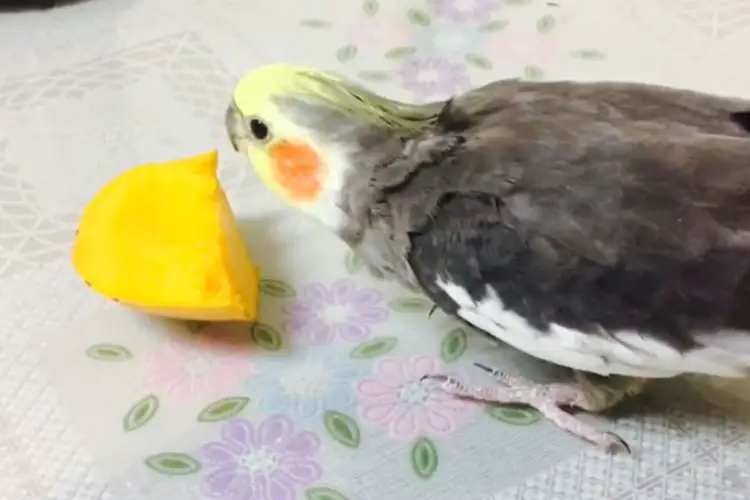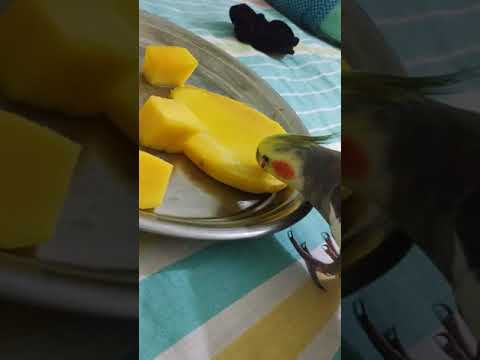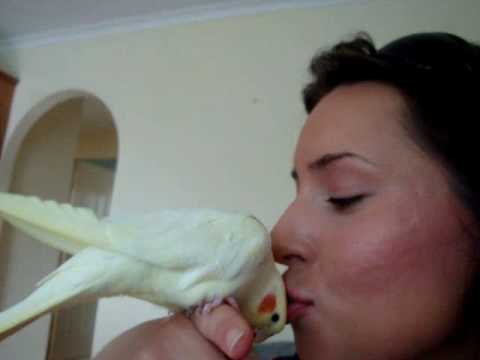If you are a pet owner and are concerned about your cockatiel’s diet and whether the mango is part of a healthy diet, we have your back. Yes, it is perfectly safe to give your cockatiel this juicy fruit.
So, can your cockatiel eat mango? Yes, they can! Cockatiels have a varied diet of different fresh vegetables and fruits. Giving them mango makes the meal colorful and most cockatiels enjoy this treat in terms of flavor too.
Mango slices are not just a tasty treat for your pet birds but it also has the necessary nutrients required for a balanced cockatiel diet. Nevertheless, parrot owners need to keep certain factors in mind while feeding their birds this fleshy fruit.
Can you feed mango to cockatiels? Yes!
Fresh produce is certainly a part of an ideal diet for a cockatiel. This includes a range of fresh fruits including papaya, kiwi, and yes, mangoes. Mango is one of the fresh foods needed for a balanced diet. Fresh mango makes delicious treats for your pet birds. This fleshy fruit provides essential vitamins to birds that help avoid major diseases.
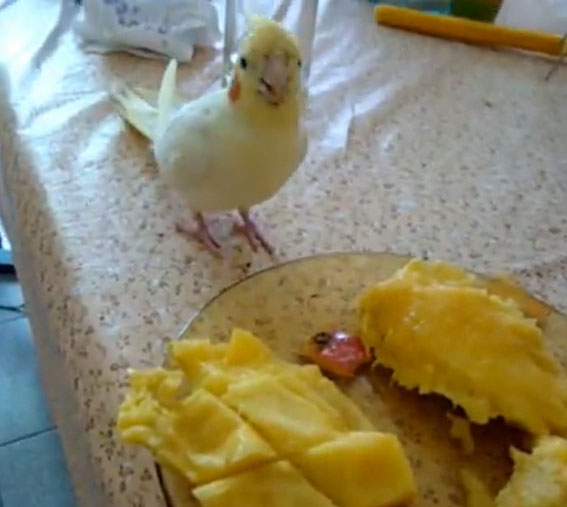
Do cockatiels like mangoes?
Yes, among other treats like bits of toast and peanut butter, cocoa also loves this tropical fruit. It is a convenient fruit snack too since mangoes are all-seasonal fruits. This piece of fruit adds color to a possible daily diet and makes a fun snack.
How to serve mango to cockatiels?
Similar to the other range of fruits cockatiels love to dig into, mangoes are prepared in somewhat the same method. The fruit is cut into small manageable pieces and the fruit pit is removed. The raw pit can be quite toxic to your bird’s health. Store-bought fresh produce will often contain preservatives that can be harmful to your bird’s health.
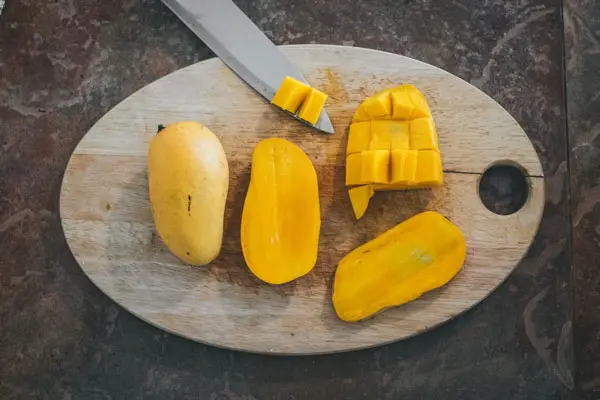
So, it is vital to thoroughly wash the mangoes in clean water to rid of as many pesticides as possible. Canned mango like most other canned foods will be low in nutritional value so try sticking to the fresh produce.
Nutritional benefits
One of the essential vitamins that mangoes provide is Vitamin A. Vitamin A is needed for a well-functioning immune system. A deficiency of Vitamin A can lead to white spotting. Mango also provides Vitamin C. This nutritious food also provides beta carotenes needed for the pigmentation of their colorful plumage.
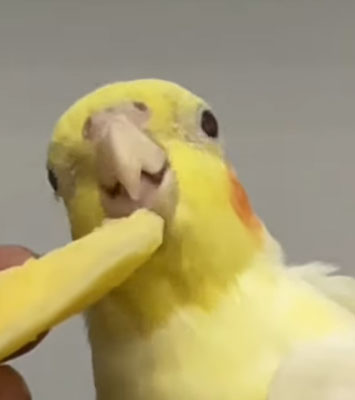
There are antioxidants in mango that help decrease inflammation. Mango also provides niacin needed for maintaining blood sugar levels and cholesterol levels at a healthy amount. It also boosts your bird with minerals such as potassium (to maintain pH, and water content), magnesium, and calcium (for good and strong bones). Mango also gives dietary fiber needed for smooth bowel movements.
The responsible amount of mango?
Mango is a very sugary fruit that contains a significant amount of sugar leading to its sweet taste. For this reason, mango should be fed as an occasional treat. Too much of this snack will disrupt the balance of carbohydrates which can be detrimental to your bird’s health. The high sugar content can lead to obesity.
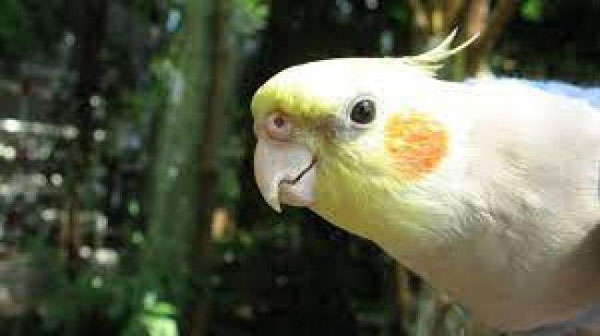
What other foods do cockatiels have?
Parrot owners are advised to follow a strictly maintained balanced diet since pet cockatiels face a high risk of obesity. A balanced diet includes fruit seeds such as grass seeds, fresh fruits, and vegetables. To have a healthy diet, your bird does not need an all-seed diet.
Even though cockatiels can have a variety of fruits, some fruit pits need to be removed before feeding such as apple seeds, cherry pits, and yes mango pits too. Make sure to give them an ample number of greens such as broccoli, beans, and mustard greens. Cockatiels need citrus fruits to provide vitamin C. In terms of treats, there are a variety of food items such as popcorn and sweet potato.
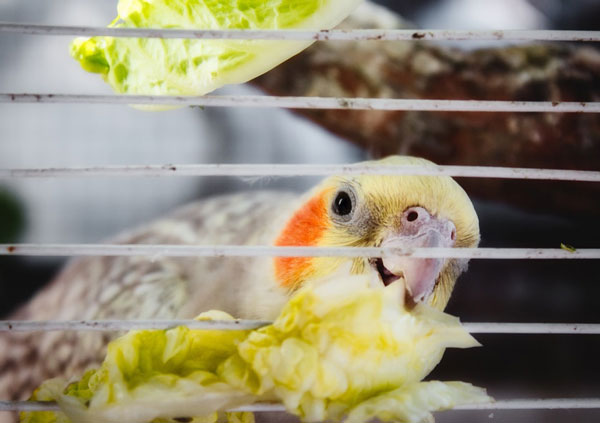
However, do not give your bird raw potato which can cause digestive problems. Cockatiels can be fed dry fruits too. This list of dry fruits includes
raisins and dates. Cockatiels can also eat boiled eggs to get that extra protein boost.
Finally, a balanced diet is finished off with plenty of fresh water to keep your bird hydrated. You can also add additional supplements to their water in which case you need to ensure that they are drinking from their water bowls often. Cockatiels mostly have human foods and don’t need specially prepared foods making them low-maintenance pets.
Cockatiel viands
These are foods that you can never ever give to your bird. The list includes alcoholic beverages and any avocado-containing fruits. Some fruit seeds are also toxic to them – mango pits, cherry pits, and so on. Any salty and sugary foods should also be avoided.
Risk of obesity
It is a common idea to give cockatiels only seeds which leads to obesity due to the high-fat content. Wild cockatiels will fly miles to burn off the calories. Unlike these wild birds, our pet birds spend almost their entire lives indoors, and flying is scarce.
Due to the low amount of activity, they are more prone to a buildup of fat in the body. So, if a balanced diet is not maintained strictly and the treats are overindulged in, this can quickly lead to obesity in pet birds.
In a worst-case scenario, obesity can also cause heart disease and even cardiac arrest in birds. The arrest can be fatal. So, bird owners, keep a close eye on your bird’s diet and try keeping it as healthy as possible.
Enjoy this video of a cockatiel eating a mango:
Do you know if your cockatiels can eat popcorn or spinach? Read our articles about it to learn more.
